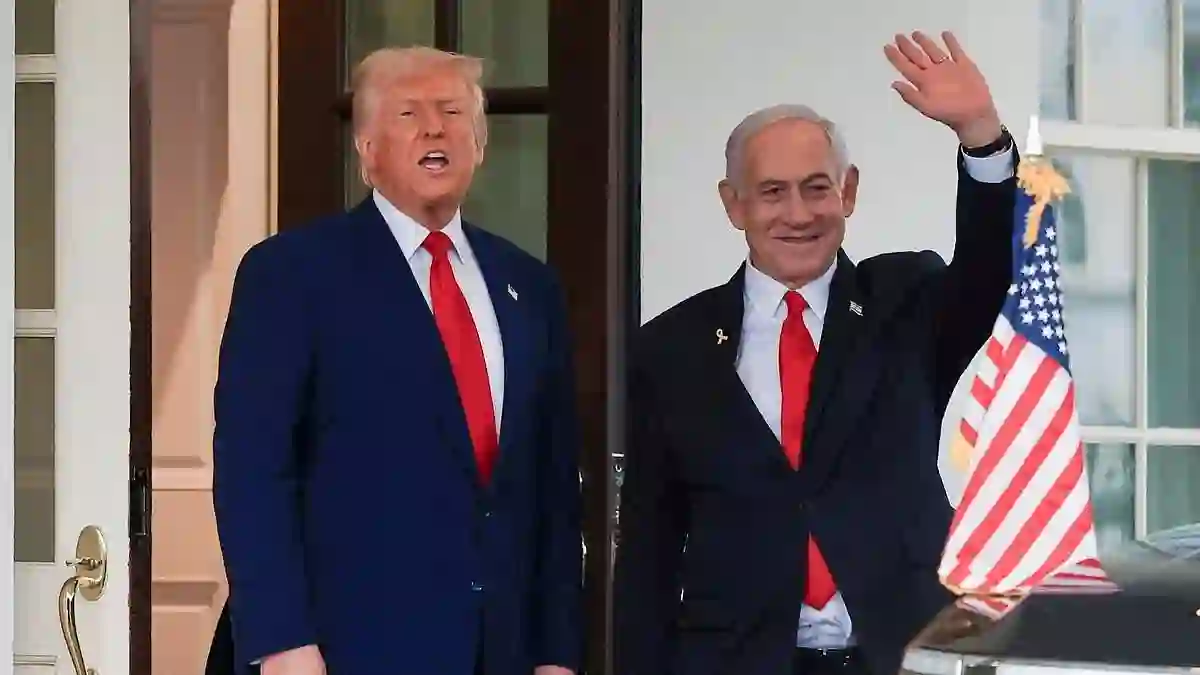As international tension continues to simmer, Donald Trump is shifting his focus back to the Middle East—and he’s now setting his sights on ending the ongoing war between Israel and Hamas.
With Israeli Prime Minister Benjamin Netanyahu expected to visit the White House next Monday, Trump is urging for a ceasefire in Gaza to be finalized “sometime next week.”
This visit will be their first face-to-face since Trump authorized strikes on Iranian nuclear sites, marking a high-stakes moment in his foreign policy efforts.
Pushing for Peace After Weeks of War
Speaking to reporters at the White House, Trump expressed hope that both sides could soon come to an agreement.
“We want the hostages back, and we want the bombing to stop,” he said bluntly.
Trump has backed Israel throughout its military operations, including its confrontation with Iran—but he hasn’t been shy about criticizing how the conflict is being handled.
At one point, visibly frustrated, he remarked: “You’ve got two countries fighting so long they don’t even know what the f— they’re doing anymore.”
His administration refers to the conflict with Iran as the “12-day war,” following U.S. airstrikes on three major nuclear sites in Iran.
While those strikes reportedly did serious damage, some officials caution that the facilities weren’t entirely destroyed.
Netanyahu Visit Comes With Big Expectations
Trump is expected to host Netanyahu next Monday, although it hasn’t been officially announced.
The White House is already framing the visit as a critical step in resolving both the Gaza crisis and tensions with Iran.
Meanwhile, Netanyahu’s close adviser, Strategic Affairs Minister Ron Dermer, has been in Washington for meetings focused on ceasefire talks and Iran-related diplomacy.
Dermer, who previously served as Israel’s ambassador to the U.S., has been in close contact with senior American officials.
Gaza Development Plan Resurfaces
In a controversial twist, Trump is reportedly revisiting earlier plans to “own and develop” Gaza, possibly relocating portions of the population temporarily.
The idea, first floated when he took office, has sparked a mix of confusion and criticism.
Despite the controversy, Trump has made it clear that ending the violence between Israel and Hamas is now one of his top priorities.
“We think we’re going to get a ceasefire within the next week,” he told reporters last Friday—though he didn’t give details on what exactly makes him so confident.
White House Says Ending War Is a Top Priority
White House Press Secretary Karoline Leavitt doubled down on Trump’s position during a briefing Monday, saying the president has been in “constant contact” with Israeli leadership.
“It’s been heartbreaking to see the destruction on both sides,” she said.
“The president wants to save lives. He wants this war to end.”
Leavitt emphasized that bringing the hostages home from Gaza is also at the top of Trump’s list.
“It’s not just about ceasefires—it’s about human lives,” she said.
Trump Interferes in Netanyahu’s Legal Troubles
Trump isn’t stopping at diplomacy.
He’s also jumping into Israel’s internal politics, calling for Netanyahu’s ongoing corruption trial to be canceled.
In a now-viral social media post, he slammed Israeli prosecutors as “out of control” and labeled the case a “witch hunt.”
He didn’t hold back: “The U.S. gives billions to Israel every year.
We’re not going to stand by and watch this happen to Bibi,” he warned, using Netanyahu’s nickname.
That kind of intervention has rattled some within Israel’s political circles, who see it as an inappropriate intrusion into their legal system.
U.S. Arms Sale Adds More Firepower to Israel
At the same time, the Trump administration has approved a new $510 million arms sale to Israel.
The package includes more than 7,000 JDAM guidance kits, which convert regular bombs into precision-guided munitions—technology Israel has leaned on heavily in Gaza and in its operations against Iran.
While the sale is small compared to the $3 billion in annual U.S. military aid to Israel, it reinforces Washington’s deep military ties with the country.
According to the State Department, “It is in U.S. national interest to help Israel maintain a strong and ready self-defense capability.”
The weapons deal, they added, is consistent with that commitment.
Questions Remain About Iran Strike Damage
Despite Trump’s bold claims that U.S. airstrikes “obliterated” Iran’s nuclear capabilities, the full picture is murkier.
The Defense Intelligence Agency confirmed significant damage at three major facilities—Fordo, Natanz, and Isfahan—but said none were totally destroyed.
International Atomic Energy Agency head Rafael Grossi confirmed the same on Face the Nation, noting that while Iran’s uranium infrastructure was “seriously hit,” parts remain operational.
“If they choose to restart, they still have the means,” he cautioned.
A Washington Post report further complicated things by citing intercepted Iranian conversations that suggested the strikes weren’t as catastrophic as Trump claimed.
What Happens Next?
Trump is betting big on next week.
Between Netanyahu’s visit, mounting political pressure, and the prospect of a new ceasefire in Gaza, this could be a defining moment in his foreign policy record.
But as critics question the long-term effectiveness of his Iran strategy and his interference in Israel’s domestic affairs, others are watching closely to see whether his bold promises about peace in Gaza will turn into concrete results.
